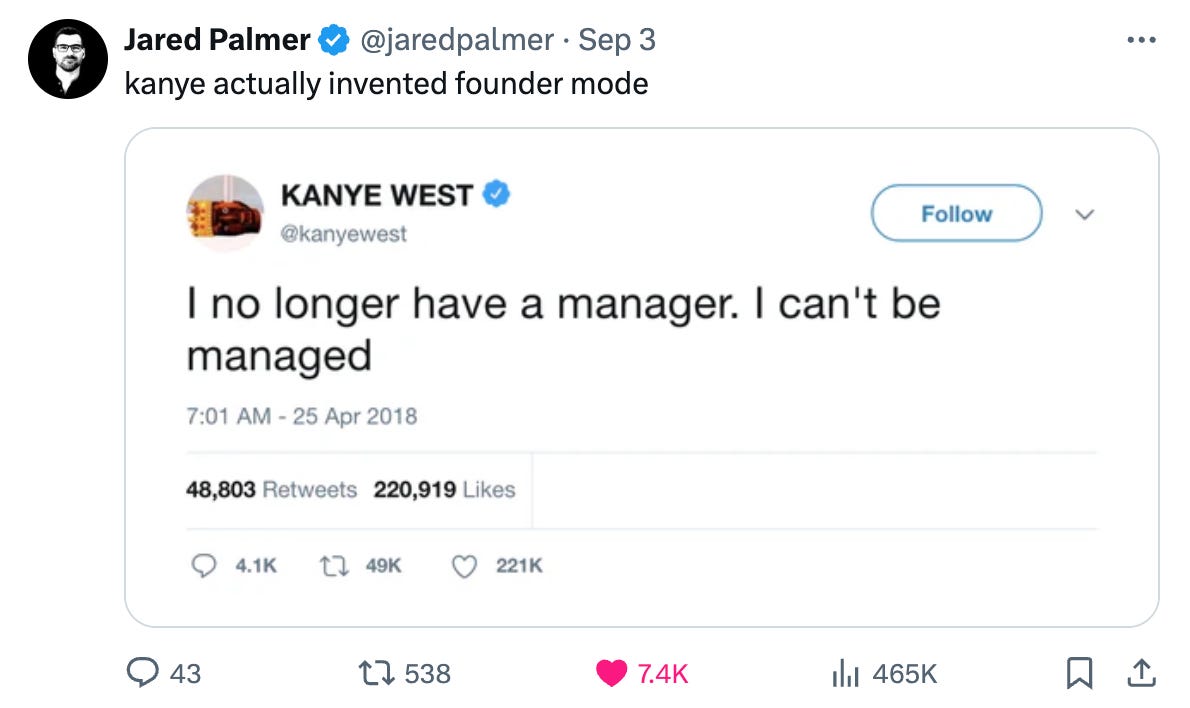In this week’s edition of The Context, Matter Labs lays off staff, Ether lays an egg, and the Trump family lays out its crypto plans.
[What’s the Matter Labs? 💼]
Matter Labs, the developer of Ethereum layer-2 ZKsync, announced that it laid off 16% of its workforce, explaining that “it became clear that the talent and roles we have today do not perfectly match our needs.”
What Journalists Said 🧑💻:
According to Matter Labs, which raised a $200M Series C in 2022 and is giving severance to the 24 affected workers, this isn’t a financial decision, reported Katherine Ross (Blockworks). Leadership instead wants a “lean” team “as it moves into its next phase.” That involves trying to connect Ethereum rollups with its own “Elastic Chain.”
“ZKsync is jostling for market share in the crowded field of Ethereum layer-2 networks, protocols built atop the main blockchain that provide an alternate venue for transactions to be settled, with the goal of doing so faster and cheaper,” explained Jamie Crawley (Coindesk).
After being at the top of ZK-based layer 2s in terms of transactions for most of the year, ZKsync Era demand “had fallen off over the past few months,” said Jason Shubnell (The Block). Active addresses were under 100,000 on Monday—off from an April high of 455,000.
PR Perspective 🔎:
Layoffs are always painful, but if you’re going to cut headcount, get ahead of it so you can control the narrative. Of course, that narrative has to align with how you treat departing employees, otherwise it will get rewritten.
[Laying an Ether Egg? 🥚]
“This was supposed to be a great year for ETH,” wrote Pedro Solimano (The Defiant). Instead, demand for Ether ETFs has been tepid; “parasitic L2s” are “draining volume, usage, and capital from the main chain”; and the upcoming U.S. presidential elections are weighing on regulation-sensitive Ethereum.
There’s something to the L2 thing: “Ethereum layer-1 network revenue has plummeted by 99% since March 2024,” noted Vince Quill (Cointelegraph). That’s when the network’s Dencun upgrade, “which significantly reduced fees for Ethereum layer-2 transactions” went live. L2s exploded and “lowered demand for Ether,” making ETH inflationary once again.
There’s a paradox behind infrastructure improvements. Solving the main pain point of Ethereum—its high gas fees—is causing people to lose money. That’s an easy sell for a blockchain with use cases beyond DeFi…less so for one that’s geared toward making returns.
[TrumpWorld Liberty? 🗺️]
Coindesk published details of former President Donald Trump’s new crypto project, World Liberty Financial.
What Journalists Said 🧑💻:
The Trump family has “teased” a crypto project for weeks, wrote Sam Kessler, Danny Nelson & Cheyenne Ligon (Coindesk). As it turns out, the main participants are “DeFi visionary” Barron Trump, brothers Eric and Donald, and four people who built a DeFi lending service named Dough Finance. In fact, an early (now-deleted) version of the project “appears to have lifted code directly from Dough Finance, which lost $2 million in July's hack.”
The real news quickly gave way to fake news, as the X accounts of Tiffany and Lara Trump were apparently “hacked Tuesday in order to promote a scam aimed at cashing in on the Trump family's nascent crypto venture,” reported MacKenzie Sigalos & Rob Wile (CNBC). Readers were directed to fake websites claiming to belong to World Liberty Financial.
That’s not the only suspect thing here. The World Liberty white paper “advertises itself as a way of ‘putting the power of finance back in the hands of the people,’" wrote Kessler & Ligon. But it puts 70% of the project’s governance token in the hands of founders and insiders. The “unusually high” allocation “raises the question of whether the project is an attempt to cash in on the Trump family's fame rather than build a novel DeFi platform.”
PR Perspective 🔎:
The Trump PR machine has its own playbook. Do not try this at home, kids.
[Tweet Of The Week]
Credit: https://x.com/jaredpalmer/status/1831038357641851380
[DeFi Definition]
A segment exploring one particular aspect of DeFi/TradFi. View previous entries here.
This week: ‘Zero Knowledge Proof’ by Emma Murphy.
Zero Knowledge Proof (ZKP) is a unique method by which one party (prover) can prove to another party (verifier) that a statement is true, without revealing any additional information. In the case of blockchains, ZKPs aim to securitize transactions, increasing financial privacy and reducing the amount of storage data needed for each transaction. These are two core components to achieving scalability.
The three properties needed for ZKPs are completeness, soundness, and zero-knowledge. Completeness refers to the verity of the information, soundness is the integrity of the exchange, and zero-knowledge is the lack of sharing additional information.
There are two main different types of ZKPs – interactive and non-interactive. They can be used in various cases, such as blockchain, finance, authentication and machine learning. Applications of ZKP are seen in notable protocols such as zkSync, Immutable, StarkWare.
The usual disclaimer: This newsletter collates the main themes and headlines of the week in DeFi/crypto/metaverse/Web3/NFT land and tries to provide unbiased context. It's aimed at anyone who wants to keep an eye on the space. It's put together by a team at YAP and doesn't contain any promotion of our clients (if one is mentioned, we'll flag that).
The team: Founder Samantha Yap and consulting editor Jeff Benson, Andrew Wickerson, Ewan Brewster, Emma Murphy and Shajar Qureshi. Your feedback is, as always, welcome. Ping us at thecontext@yapglobal.com. Old newsletters can be found here.
This newsletter is prepared by YAP Global, an international P.R. Consultancy focusing on helping cryptocurrency, Decentralised Finance (DeFi) and brands through impactful storytelling. Find out more about us here.





